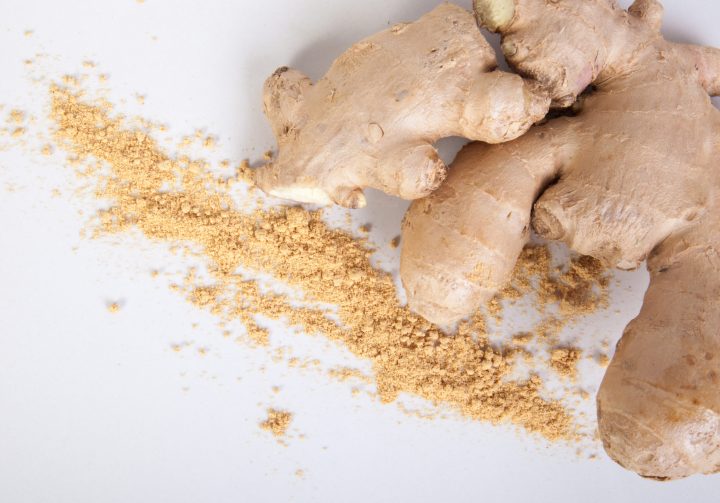MAIN INGREDIENT
Gingerly does it

Ginger isn’t an ingredient that you want to chuck into a dish with abandon. Like the adjective with which it shares a name, it’s a spice that needs restraint.
Make Tony’s Ginger Drizzle Cake
The derivation of ginger, the noun, and gingerly, the adjective, are quite different.
And ginger, the spice, is made from the stem of Zingiber officinale, and is cultivated from the tuber, not from seed. Ginger, the plant, on the other hand, is from the Zingiberaceae family of tubers so is related to turmeric (which has a similar looking clustered tuber but is a vivid orange hue), cardamom, and galangal, a key ingredient of Thai cuisine.
But ginger, when used in reference to the likes of Harry Windsor or Queen Elizabeth I, refers only to its colour, although the interior of the tuber is hardly ginger in hue at all, more of a pallid yellowish-pink, even beige.
Ginger, the word, is from gingifer in the old English of the 14th century, and from the Latin gingiber before that, further derived from the Greek zingiberis, and on and on to the indecipherable Sanskrit srngaveram.
Gingerly, the adjective, is more closely related to “gentlemen” or “genteel” than to ginger. It’s derived from old French and from the Latin gentius: well-born. Gingerly meant elegantly or daintily before it came to mean “extremely cautiously” circa 1600, whereas today it might be more often used to mean pussyfooting around something or treading lightly so as not to hurt someone’s feelings. So it’s a good word for the millennial generation then; no offence likely to be caused.
Before anyone takes offence, I am of ginger heritage myself, down from the Vikings (I like to think) via Yorkshire and having been born with that unmistakable tinge of red in my hair. Well, before the silver set in. So I prize the colour, and the tuber bearing its name, as I would a clan name or tartan, had my stock been from just a tad further north. Ginger hair, or red hair as it is often called, is special in that it is a mark of only between one and two percent of humans, and, although Ireland is blessed with the world’s highest number of redheads at 10%, Scotland is not far behind with six percent, yet their capital Edinburgh has the world’s highest concentration of redheads, which is yet another fine reason to emigrate to that most desirable of cities. Redheads rock.
Like Harry, the wayward monarch of gingers, ginger is a bit of a lad, a gadabout, prone to popping up in all sorts of things, from a savoury curry or a thousand Asian wok dishes to a sweetly gingered cake or hot ginger pudding, even ale or beer or, in Britain, wine. But the Brits will make wine out of anything, so let’s not go down that rabbit hole.
In Europe it is almost invariably found only in sweet things from confectionery and patisserie to puddings, just as in South Africa it occurs in preserves and in biscuits and puddings derived from the old Dutch immigrant culture. Preserved ginger is worth having a jar of in your fridge.
But it’s in the East that exciting things happen with fresh ginger as well as ground or preserved either in syrup or in vinegar. From India to China and Japan, there is a keen appreciation of ginger’s value and the perk it gives to a dish. Unlike its friend garlic, to which it is often a companion, ginger offers a top note in a dish while garlic lurks in the depths of the flavour palette. (Many Indian dishes require a paste of the two mixed or minced together.)
It’s pickled in Japan as the ubiquitous accompaniment to sushi. In China it provides the yang to spring onion’s yin, from meat to seafood. In Indonesia it’s used as an ingredient in a punchy sambal.
Grate fresh ginger into hearty winter soups; add chopped pickled ginger to a tagine. In South Africa in earlier days, ginger was one of only two spices grown here and not needing to be imported; the other was chillies. When I was growing up, ginger was almost always found only powdered or dried and rock hard. You bought the whole, dried tuber and grated it. Today, fresh ginger is available in most supermarkets all year round; right alongside the fresh garlic, most of the time.
Ginger need not be relegated to a little box of dried powder in the spice cupboard. Buy it fresh and start using it almost as often as you do garlic in your savoury cooking. DM168/TGIFood






 Become an Insider
Become an Insider
Comments - Please login in order to comment.